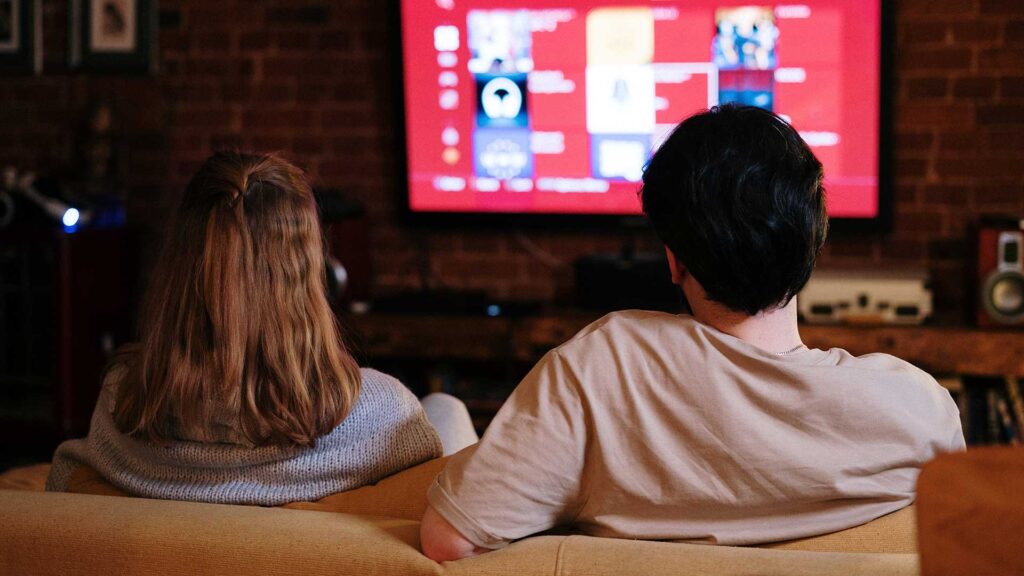
At night, it’s the one time where we can just sit back and relax and watch some of our favorite TV shows, whether they be on Hulu or Netflix. And we are all aware that sometimes, we say we will just watch one episode… but is it ever just one? The obvious answer is, once in a while, probably.
If you stay up way past your bedtime because each episode of your favorite show ends on an attention grabber leading you to watch more, we can definitely say you’re not alone with this one. Sometimes the shows we are currently watching are just too good, making it extremely difficult to click the red power button on the remote and get ready for bed.
A new survey conducted by the American Academy of Sleep Medicine (AASM) revealed that 91 percent of Americans have lost those essential hours of sleep due to staying up past their bedtime to binge watch their favorite TV show or streaming series. (1)
The overall results were broken down even further. In the total of the 2,005 participants that completed the survey, 38 percent of the participants said they lose sleep often from binge watching shows and 37 percent said they sometimes skip their planned bedtime to keep watching. The lowest percentage consisted of 8 percent of participants reporting they never lose sleep to binge watch their favorite shows.
Also, the survey showed which gender is more susceptible to going to bed late. Forty three percent of males stated they stay up late while females fell a little behind at 33 percent. And by no surprise, 51 percent Gen Z participants indicated they miss their intended bedtime, making them the age group to stay up the most often.
So, why do people get so drawn into a show that we decide to skip one of our favorite parts of the day known as sleep? We sought insights from experts to delve deeper into this topic to explore factors, such as gender and age group, that may contribute to these outcomes.
Why Are We Susceptible To Binge Watching? An Expert Weighs In
Our bodies need to wind down at the end of the day, but sometimes just simply doing that can be hard for us after all the stimulation we accumulate. According to Dr. Camilo Andrés Ruiz, a concierge medical physician and a sleep medicine expert at Sleep Internal Medicine Specialists, turning off that TV for people who work long hours and until the evenings can make it difficult to get to bed at a decent time. (2)
“The inability to have a system in place to rest and ‘ease’ into the night does not exist for many,” Ruiz told Sleepopolis. “People will work into late hours of the night and may look at binge TV as a way to rest and relax before the next day’s work routine.”
Also, we spoke with Katherine Danley, a licensed therapist at Thriveworks, who said we have been taught to view TV and social media as a way to wind down and take a break from the realities of life. She said that when we sit down on the couch to watch our favorite TV show, it is an enjoyable behavior since our body releases the feel good hormone known as dopamine. (3)
“Our brain tells our body that we ‘need to keep doing this,’” she told Sleepopolis. “It becomes almost an addiction in itself.”
So how do gender and age play a part in wanting to do a little more binge-watching at night? Danley said that women often need more sleep than men, because they use their brains more throughout the day. (4)
And for the Gen Z generation, Danley said that it is no surprise this age group makes up the large percentage of binge TV watchers since they were the first generation introduced to electronics at such a young age. Also, since this generation may have yet to have time-consuming careers and a family, there is more time and flexibility at night to indulge in their favorite shows.
“This generation also is filled with people who are just breaking into the workforce and do not have as many responsibilities as other generations,” she said. “They may have yet to have children and only need to worry about their own responsibilities.”
For the individuals that fall on the younger side of the Gen Z age group, they probably tend to prefer going to bed later and waking up later in the morning. Also, they might not have as many responsibilities in the morning, so waking up later is not a major concern.
So each generation and gender seems to either prioritize their favorite show or sleep, but what is your choice going to be?
Sources
1. AASM sleep prioritization survey binge-watching TV. Accessed December 6, 2024. https://aasm.org/wp-content/uploads/2023/11/sleep-prioritization-survey-2023-binge-watching-tv.pdf.
2. Drcamiloruiz. Home – dr. Camilo Ruiz: Concierge physician: Sleep medicine. Dr. Camilo Ruiz | Concierge Physician | Sleep Medicine. May 3, 2024. Accessed December 6, 2024. https://medicinesleepfortlauderdale.com/.
3. Thriveworks counseling: High-Quality Therapy & Psychiatry. Accessed December 6, 2024. https://thriveworks.com/therapist/fl/katherine-glaser.
4. Pittsburgh C. Study: Women need more sleep than men. CBS News. March 15, 2016. Accessed December 6, 2024. https://www.cbsnews.com/pittsburgh/news/women-need-more-sleep-because-they-use-more-of-their-brains/
Ruiz Andrés Camilo. Personal Interview. December 6, 2024.
Danley, Katherine. Personal Interview. December 6, 2024.



























